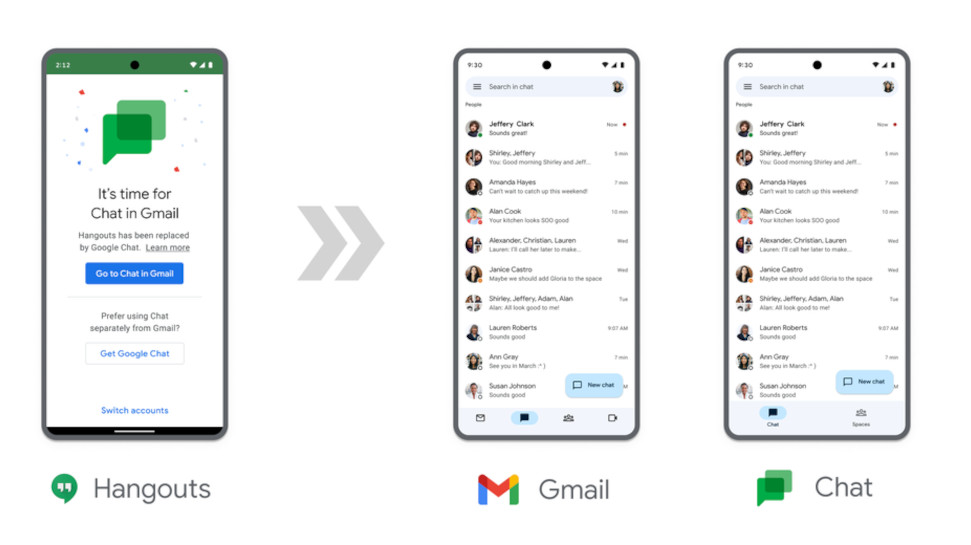One of the most influential names in chat software is bidding farewell as Google Hangouts begins its final goodbye.
The company has confirmed that from November 1, 2022, Hangouts on the web will no longer be available for users as it looks to modernize its Google Workspace suite to be as effective for users as possible.
Instead, users will now be directed to Google Chat as the company looks to continue the transition to its more unified instant messaging service.
Goodbye Google Hangouts
Users looking to access the Hangouts website will now see a message stating, "Starting November 1, 2022, Hangouts on the web will redirect to Chat on Web. We recommend moving to Chat now."
The news is the final nail in the coffin for Google Hangouts following the initial announcement of its retirement in 2020.
The Android and iOS apps were shut down in July 2022, with the oficial Hangouts Chrome extension also closed shortly after.

Google says that although most messages and contacts should be moved to the new service, some conversations or portions of conversations won’t automatically migrate from Hangouts to Chat, although affected users should already have been contacted.
Users can continue to use Google's Takeout service to download their Hangouts data until January 1, 2023.
The company first began "upgrading" enterprise and business users on "Classic Hangouts" to Google Chat in March 2022. Mobile users started seeing in-app alerts to move onto Chat in Gmail or the Chat app in June, with web users upgraded in July.
"Google Chat offers a modern and integrated experience in Google Workspace. We have big ambitions for the future of Chat, and over the coming months you'll see even more features like direct calling, in-line threading in Spaces and the ability to share and view multiple images," wrote Ravi Kanneganti, Product Manager, Google Chat at the time.
"As we take this final step to bring remaining Hangouts users to Chat, we hope users will appreciate our continued investment in making Chat a powerful place to create and collaborate."
- Here's our list of the best online collaboration tools right now
Via TechCrunch
Source: TechRadar